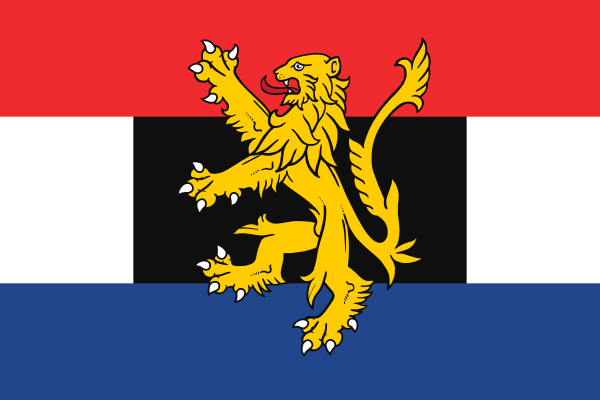I have given my view at the online consultation regarding the implementation act, and post it here -in Dutch- for clarity. As I have no intention to link my name to my treatynotifier account, I have opted for not having my reaction posted publicly at the consultation website. It seems most have reacted in this way, as only 4 reactions were published on the consultation site.
For the sake of completeness, my full reaction is shown below (in Dutch).
Mijn commentaar richt zich voornamelijk op de gekozen implementatie voor de Caribische koninkrijksdelen. Het maken van een unitair octrooi met bijbehorende eengemaakte octrooirechtspraak leidt in het voorstel weliswaar tot unificatie op Europees gebied, maar heeft als -naar mijn mening ongewenste- consequentie dat hetzelfde Europese octrooi verschillende rechtsgevolgen heeft binnen het Koninkrijk. De memorie van toelichting gaat niet in op de belangenafweging tussen eenmaking op Europees gebied en eenmaking op Koninkrijksgebied en geeft niet aan hoe de overige landen/bijzondere gemeenten in het koninkrijk hier tegenaan kijken. Bovendien lijken er wetgevingsopties te zijn die het uiteenlopen van Caribische en Europese wetgeving in het Koninkrijk verminderen die niet besproken (laat staan gekozen) worden.
De effecten van deze wijziging in de Cariben lijken in de toelichting ook niet aan bod te komen. Indien een unitair octrooi wordt verleend, geldt het Nederlandse Europese Octrooi uitsluitend daar (hierna: Caribisch EP), en is het dus beduidend minder waard dan het reguliere Nederlandse EP (het europees octrooi met gelding voor het gehele koninkrijk - behalve Aruba). Komt dit in de instandhoudingskosten tot uitdrukking, want dat wordt nu niet genoemd? Ook lijkt het vertaalregime (vertaling geheel in het Engels, en conclusies in het Nederlands) niet in balans voor het Caribisch EP: is er echt behoefte aan vertalingen (ook gezien de kosten) in een gebied waar Engels vaak net zo goed wordt begrepen als Nederlands?
Het OctrooiCentrum krijgt voorts volgens de memorie van toelichting nauwelijks te maken met gewijzigde omstandigheden, hoewel het aantal “validaties” zal afnemen. De gevolgen mogen qua technische werkzaamheden beperkt zijn, maar is er geen effect op budget en personeelsbestand indien een groot aantal unitaire octrooihouders afziet van een Caribisch EP of is de verwachting dat een significant aantal validaties nog steeds zal plaatsvinden? Wellicht is het in dit geval geraden om het aantal validaties/instandhoudingen te vergelijken met gebieden van vergelijkbare grootte, zoals Malta.
Ik vraag me af of er niet een alternatieve implementatie kan worden gevonden die uitgaat van het koppelen van het Caribische octrooi zoveel mogelijk aan het unitair octrooi en kosten voor overheid en aanvrager laag te houden, door
-de houder van een unitair octrooi automatisch het Caribisch EP toe te kennen
-geen jaartaksen te vragen
-geen register bij te houden, maar slechts te verwijzen naar het unitair octrooiregister
-als object of property, in vorm etcetc altijd de status van het unitaire octrooi te volgen (een door het UPC beperkt unitair octrooi, leidt automatisch tot een beperkt Caribisch octrooi; eigendomsoverdracht of in onderpand geven op wat voor grond dan ook van het unitair octrooi, leidt automatisch tot eigendomsoverdracht/verpanding van het corresponderende Caribisch EP.
-De Nederlandse rechter doet alleen inbreuk-gerelateerde zaken voor het Caribisch octrooi; en houdt beslissingen ook daarover aan, zolang er vergelijkbare inbreukzaken spelen over het corresponderende unitaire octrooi. De Nederlandse rechter is niet bevoegd wat betreft de reikwijdte/niettigverklaring van het octrooi.
Deze consultatie gaat niet over de goedkeuringswet voor het eengemaakt octrooigerecht, maar deze is wel bijgevoegd (en de onderwerpen zijn te sterk gelinkt om ze hier niet te beantwoorden). Ik vraag me af of er ook hier geen mogelijkheid bestaat voor een andere implementatie.
Ten eerste -zelfs bij deze wijze van implementatie- dient m.i. voor een rijkswet en niet voor een gewone wet gekozen te worden. Artikel 34 bepaalt dat in geval van een niet-unitair octrooi (klassieke EPs) de beslissing geldt voor het hele gebied waar het Europees octrooi effect heeft, dus ook de Caribische Koninkrijksdelen. Aangezien het octrooiverdrag Curacao en Sint Maarten raakt, zou dat alleen al zou goedkeuring bij rijkswet vereisen (desnoods zoals bij de EU verdragen: goedkeuring voor het gehele koninkrijk, maar ratificeren slechts voor het Europees deel)
Ten tweede wordt niet aangegeven of er de mogelijkheid bestaat om ook voor de Caribische koninkrijksdelen het rechspraakverdrag te ratificeren. Daarvoor is weliswaar geen aparte provisie in het verdrag, maar aangezien het Koninkrijk der Nederlanden (en niet Europees Nederland) ondertekenaar is, is het wellicht ook mogelijk om voor het gehele (of bijna gehele) koninkrijk te ratificeren. Dat zou een hoop van de bovengenoemde complicaties oplossen, zeker als er in dat geval voor wordt gekozen dat er wat betreft een Caribisch EP geen rechtsgang naar de Nederlandse rechter zou openstaan.

